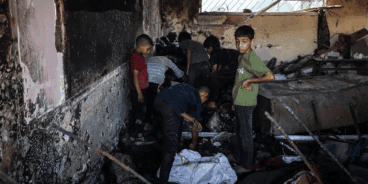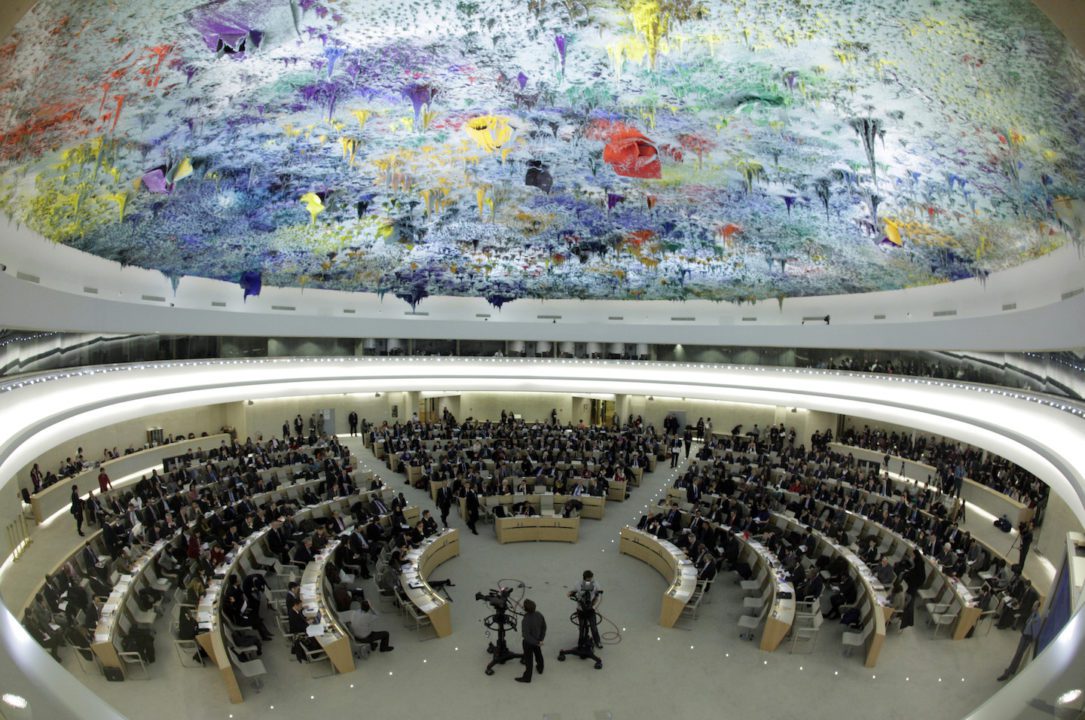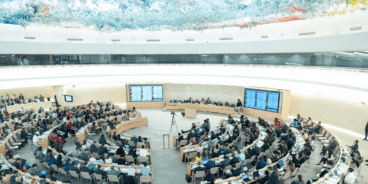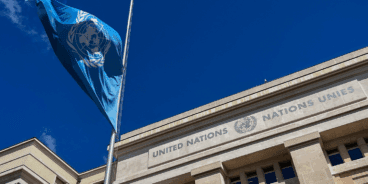

Atrocity Prevention and Outcomes of the Human Rights Council’s 47th Session
The 47th regular session of the Human Rights Council (HRC) was held in Geneva between 21 June and 14 July. As the primary international human rights body, the Human Rights Council has the capacity to prevent and respond to mass atrocity crimes, as systematic violations and abuses of human rights can be an indicator of potential genocide, war crimes, crimes against humanity or ethnic cleansing. The summary below highlights major outcomes and relevant dialogues from the 47th session as they relate to the Responsibility to Protect (R2P) populations from such crimes. As part of the session, the Netherlands delivered a statement on behalf of the Group of Friends of R2P.
RESOLUTIONS
A/HRC/47/L.6 Situation of human rights in the Syrian Arab Republic
Expressing grave concern that the Syrian conflict has entered its second decade, the HRC recalled statements made by the UN Secretary-General and the High Commissioner for Human Rights that potential crimes against humanity and war crimes may have been committed. The HRC also recalled that the Commission of Inquiry on Syria found reasonable grounds to believe that Syrian authorities continue to carry out a widespread or systematic attack against the civilian population, including a policy of involuntary or enforced disappearance perpetrated by the security forces in order to spread fear and punish dissent. Emphasizing the vital work of Syrian organizations of victims, survivors and families working on the issue of missing persons, the HRC expressed support for efforts to compile a comprehensive, transparent record of all casualties of the conflict; acknowledged the importance of the work of such organization in enabling urgent access to information about those missing and disappeared; and emphasized the need for accountability and justice for the victims and their families. The HRC further encouraged all member states, relevant UN bodies, international organizations and civil society to coordinate efforts and focus attention on the issue of missing persons in Syria. The resolution demanded that “the Syrian authorities meet their responsibility to Protect the Syrian population.” The resolution was adopted by a vote of 26 in favor, 6 against and 15 abstentions.
A/HRC/47/L.11 Situation of human rights of Rohingya Muslims and other minorities in Myanmar
The HRC expressed deep regret of the continued non-cooperation of Myanmar with the Special Rapporteur on the situation of human rights in Myanmar and urged the country to grant full, unrestricted and unmonitored access to all UN mandate holders and human rights mechanisms. The HRC called upon Myanmar to combat incitement and hate speech against Rohingya Muslims and other minorities, and to end the internet and telecommunication shutdown in all areas of Myanmar. The HRC also called upon Myanmar to make serious efforts to eliminate statelessness and the systematic and institutionalized discrimination of members of ethnic and religious minorities, particularly Rohingya Muslims, and to rapidly implement the five-point consensus reached at the Leaders’ Meeting of the Association of Southeast Asian Nations held on 24 April 2021. The HRC requested the High Commissioner for Human Rights monitor implementation of the recommendations made by the Fact-Finding Mission on Myanmar and to continue to track progress in the human rights situation with the support of specialist experts and in complementarity with the work of the Independent Mechanism for Myanmar and the Special Rapporteur. The HRC further requested the High Commissioner to present an oral update at the Council’s 50th session and a written report at its 52nd session, each to be followed by an interactive dialogue, and a written report to the General Assembly at its 77th session. The HRC further decided to hold a panel discussion on the root causes of human rights violations and abuses against Rohingya Muslims and other minorities in Myanmar at its 50th session and requested the High Commissioner submit a report on the panel discussion to the HRC at its 52nd session. The resolution was adopted without a vote.
A/HRC/47/L.14 Situation of human rights in Eritrea
The HRC expressed deep concern at ongoing human rights violations and abuses in Eritrea, as outlined by the Special Rapporteur on the situation of human rights in Eritrea in his report. The HRC requested the Office of the High Commissioner for Human Rights (OHCHR) present an oral update at the Council’s 49th session on progress made regarding cooperation between Eritrea and OHCHR, and its impact on the human rights situation in the country. The HRC extended the mandate of the Special Rapporteur for a period of one year and requested the Special Rapporteur present an oral update at its 49th session during an interactive dialogue, and to present a report on the implementation of his mandate at the Council’s 50th session and to the General Assembly at its 76th session. The HRC called upon Eritrea to cooperate fully with the Special Rapporteur, including by granting him access to the country and committing to making progress on the benchmarks proposed by the previous mandate holder. The resolution was adopted by a vote of 21 in favor, 13 against and 13 abstentions.
A/HRC/47/L.20/Rev.1 Situation of human rights in the Tigray region of Ethiopia
In its first resolution on the situation in Tigray, Ethiopia, the HRC expressed deep concern about the human rights situation since the outbreak of armed conflict last November. The HRC was particularly disturbed by allegations of human rights violations and abuses and violations of International Humanitarian Law (IHL) and refugee law, as well as reports indicating the participation of Eritrean troops in the conflict. The HRC also expressed concern about the deteriorating humanitarian situation in the Tigray region, including potential famine conditions, as well as about ongoing insecurity hampering humanitarian access. The HRC called for the swift and verifiable withdrawal of all Eritrean troops from Tigray and underscored the need to hold accountable all those responsible for human rights violations and abuses and violations of IHL. The HRC welcomed the joint investigation undertaken by OHCHR and the Ethiopian Human Rights Commission (EHRC) and requested that OHCHR, in consultation with the government of Ethiopia, provide advice and technical assistance in order to strengthen the capacity of the EHRC, as well as the criminal justice system and broader accountability and reconciliation processes. The HRC also requested the High Commissioner for Human Rights present an oral update at the Council’s 48th session during an enhanced interactive dialogue and at its 49th session during an interactive dialogue. The resolution reiterated “the responsibility of states (…) to protect their populations, in line with their commitments under international human rights law and international humanitarian law.” The resolution was adopted by a vote of 20 in favor, 14 against and 13 abstentions.
RELEVANT INTERACTIVE DIALOGUES, DEBATES AND UPR
-
- Interactive Dialogue with the Special Rapporteur on Eritrea
- Interactive Dialogue on the High Commissioner’s report on Venezuela
- Interactive Dialogue with the Commission of Inquiry on the Syrian Arab Republic
- Interactive Dialogue on the High Commissioner’s oral update on Myanmar
- Interactive Dialogue with the Special Rapporteur on Myanmar
- Interactive Dialogue on the oral update of the Independent Expert on the Central African Republic
- Interactive Dialogue with the Special Rapporteur on the Occupied Palestinian Territory
- Interactive Dialogue on the Annual Report of the United Nations High Commissioner for Human Rights and reports of the Office of the High Commissioner and the Secretary-General
- Interactive Dialogue with the Special Adviser on the Prevention of Genocide
Related Content


